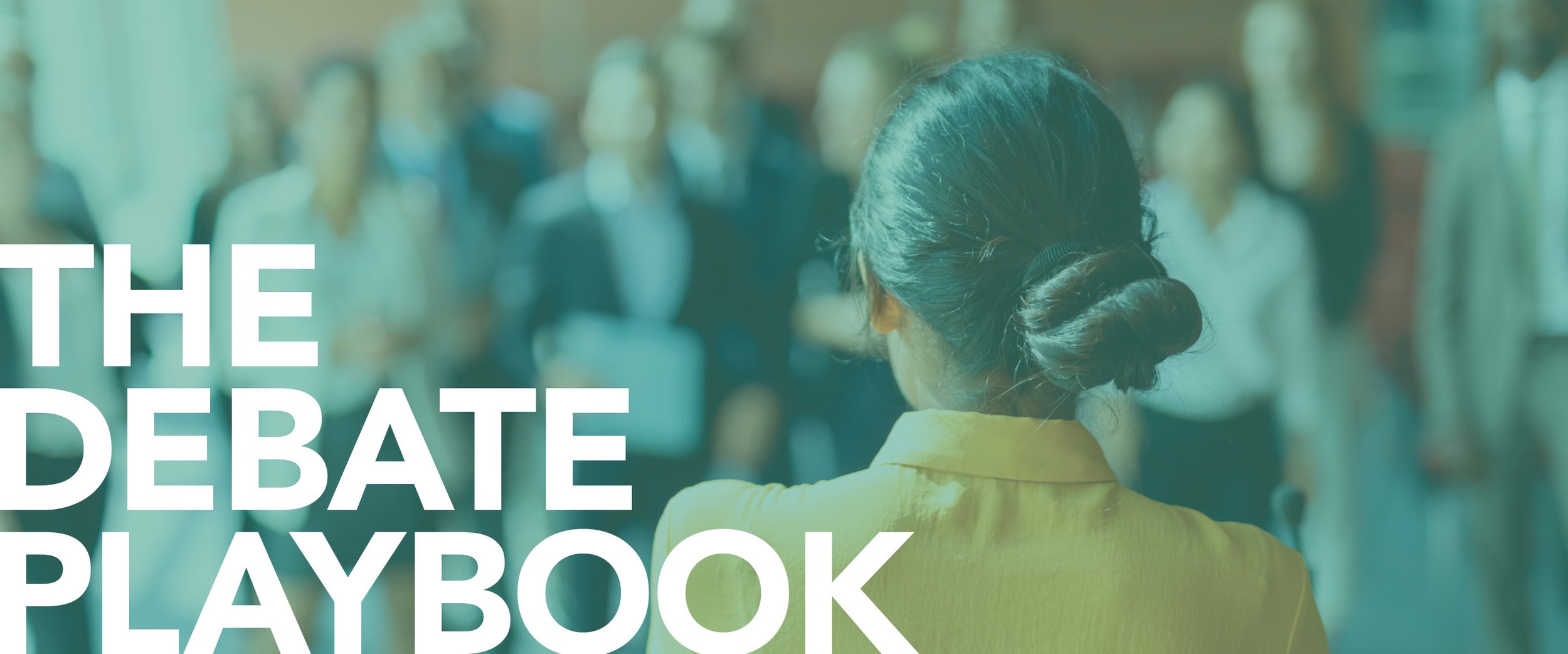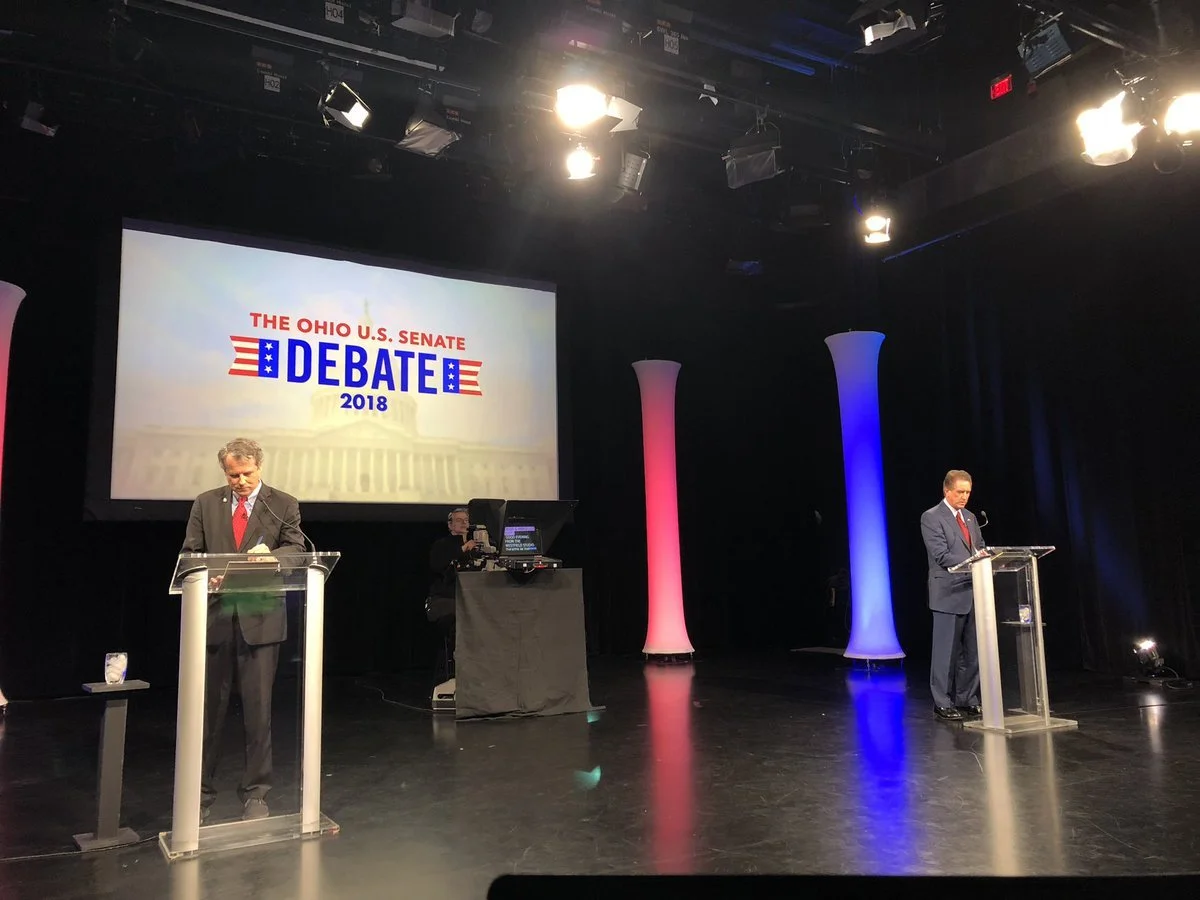How the Debate Playbook Helps
The Playbook provides step-by-step guidelines, from identifying the contested races that might be worthy of putting on a debate, to post-debate thank yous and planning for the next cycle. We offer best practices from what we and other statewide debate collaborations have learned, and links to other useful guides. In the appendix, you will find more than a dozen sample documents for you to adapt to your debate. Most of all, we hope you find inspiration and comfort in the Playbook, as you look to provide a needed opportunity for candidate-voter interaction.
What is a Debate?
A debate is an incubator of democracy, and an opportunity for inquisitive voters to scrutinize and hold accountable candidates for political office as they respond to questions that focus on major issues. In the United States, political debates date back to 1858 when Abraham Lincoln and Stephen A. Douglas competed for a U.S. Senate seat. Debate outcomes vary depending on who is making the assessment, but research has shown repeatedly that high quality debates can move voters’ decisions. Many people confuse debates with forums because they both involve candidates for elected office answering questions.
Debate
•Includes at least two candidates for the same office
•Candidates appear concurrently, face-to-face, and with opportunities to respond to each other
•Time has been provided for rebuttals
Forum
•Candidates answer questions consecutively
•No planned opportunity for candidates to respond to each other
•Candidates do not ask each other direct questions
The Debate Playbook
This Playbook was funded with the support of the Cleveland Foundation and AARP Ohio.
The Playbook will give you the tools to decide whether to hold a debate, get organized for and plan the debate, conduct the debate, wrap up and do the necessary post-debate follow-up.
This two-page document provides quick facts on The Debate Playbook.
View the Debate Playbook in:
-

GUÍA DE DEBATE
-

GUIDE POUR LE DEBAT
-

دليل المناظرة
-

辩论手册





